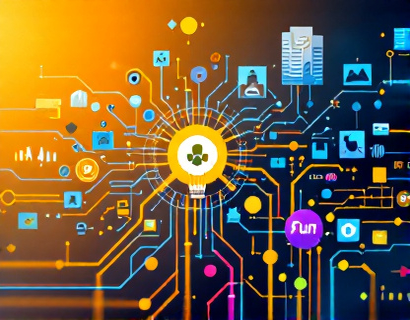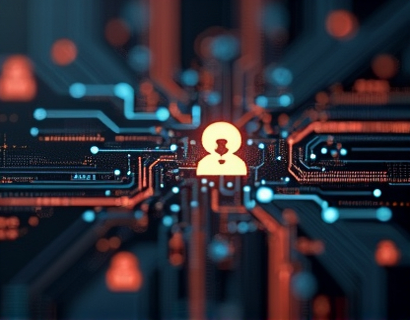Transforming Education with AI-Powered Chatbots: A Comprehensive Guide for Students, Families, and Educators
The integration of Artificial Intelligence (AI) in education has opened new avenues for personalized learning, efficient information retrieval, and enhanced engagement. Among the various AI applications, educational chatbots stand out as a revolutionary tool, offering specialized insights to students, families, and educators. This article delves into the capabilities and benefits of AI-powered educational chatbots, focusing on how they provide industry-specific knowledge and services while ensuring a safe and educational experience for all users.
Understanding AI-Powered Educational Chatbots
AI-powered educational chatbots are sophisticated software applications designed to simulate conversation with human users through text or voice interactions. These chatbots leverage natural language processing (NLP) and machine learning algorithms to understand and respond to user queries accurately. In the context of education, these chatbots are tailored to deliver content that is not only informative but also aligned with the curriculum and industry standards.
Specialized Insights for Students
For students, AI educational chatbots serve as personalized tutors, providing instant answers to a wide range of questions. These chatbots can assist with homework, explain complex concepts, and offer additional resources for deeper understanding. The specialized nature of these chatbots means they can cater to specific subjects and levels, ensuring that the information provided is both accurate and relevant. For instance, a chatbot focused on science can explain the principles of physics or biology in an engaging and easy-to-understand manner, complete with examples and visual aids.
Benefits for Families
Families play a crucial role in a child's education, and AI chatbots can be invaluable allies. Parents can use these chatbots to stay informed about their child's progress, understand the curriculum, and find resources to support learning at home. The chatbots can provide updates on upcoming assessments, suggest educational activities, and offer tips for fostering a conducive learning environment. This level of accessibility ensures that parents are always in the loop, regardless of their schedule or location.
Support for Educators
Educators can leverage AI chatbots to enhance their teaching methods and manage their workload more efficiently. These chatbots can assist in lesson planning by suggesting activities and materials based on the curriculum and student needs. They can also help in grading and providing feedback, freeing up time for more interactive and personalized teaching. Additionally, chatbots can facilitate communication between teachers and students, answering common questions and providing additional support outside of regular class hours.
Ensuring Content Verification and Safety
One of the most significant advantages of AI educational chatbots is their ability to provide verified content. Unlike traditional search engines where the accuracy of information can vary, chatbots are programmed to source data from reliable and authoritative databases. This ensures that students and educators receive accurate and up-to-date information. Furthermore, these chatbots are designed with safety in mind, adhering to strict guidelines to protect user data and ensure a secure environment. For younger users, chatbots can be configured to provide child-friendly content, filtering out inappropriate or complex information.
Child-Friendly Features
Recognizing the importance of safety for children, AI educational chatbots incorporate various features to create a secure and engaging experience. These include age-appropriate language, interactive elements like quizzes and games, and visual aids such as images and videos. The chatbots are programmed to maintain a positive and encouraging tone, fostering a love for learning. Parents can also set parameters to control the type of content and interactions, ensuring that the experience is both educational and safe.
Industry-Specific Knowledge
AI chatbots can be tailored to provide in-depth knowledge across various industries, making them invaluable resources for students and educators alike. Whether it's exploring the latest advancements in technology, understanding economic trends, or delving into environmental science, these chatbots offer specialized insights. For example, a chatbot focused on healthcare can explain medical concepts, discuss recent research findings, and provide information on career paths in the medical field. This industry-specific content helps students and educators stay informed and competitive in their respective fields.
Enhancing Learning Through Interaction
Interactive learning is a key feature of AI educational chatbots. Unlike passive consumption of information, chatbots engage users in conversations, encouraging active participation. This interaction can lead to better retention of information and a deeper understanding of complex topics. For instance, a student asking about the water cycle can receive a step-by-step explanation, followed by questions to test their understanding. This dynamic approach not only makes learning more enjoyable but also more effective.
Personalized Learning Paths
One of the most powerful aspects of AI chatbots is their ability to create personalized learning paths for each user. By analyzing user interactions and performance, the chatbot can identify areas of strength and weakness, tailoring the content accordingly. This personalized approach ensures that each student receives the support they need to succeed, whether they are advancing quickly or require additional assistance. For educators, this data can be invaluable for identifying trends and adjusting teaching strategies to better meet the needs of their students.
Collaboration and Community Building
AI educational chatbots can also facilitate collaboration among students and between students and educators. Through group discussions, shared resources, and collaborative projects, these chatbots help build a sense of community. Students can ask questions, share insights, and work together on assignments, all within a safe and monitored environment. This collaborative approach not only enhances learning but also develops important social and communication skills.
Continuous Improvement and Adaptation
The beauty of AI lies in its ability to learn and adapt over time. Educational chatbots continuously update their knowledge bases, incorporating the latest research, industry developments, and user feedback. This ensures that the information provided remains current and relevant. Additionally, machine learning algorithms allow the chatbots to improve their responses based on user interactions, becoming more accurate and helpful with each conversation.
Overcoming Challenges and Ensuring Effectiveness
While AI educational chatbots offer numerous benefits, there are challenges to consider. One key challenge is ensuring the chatbots can handle the complexity and nuance of human questions. To address this, ongoing development and refinement are essential, involving input from educators, subject matter experts, and users. Another challenge is maintaining user engagement, which can be mitigated by incorporating interactive elements and gamification. Privacy and data security are also paramount, with strict protocols in place to protect user information.
Conclusion
AI-powered educational chatbots represent a significant leap forward in educational technology, offering specialized insights and personalized learning experiences for students, families, and educators. By providing verified content, ensuring safety, and fostering interaction, these chatbots enhance the educational journey in a secure and supportive environment. As technology continues to evolve, the potential for AI in education is vast, promising a future where learning is more accessible, engaging, and effective.











































